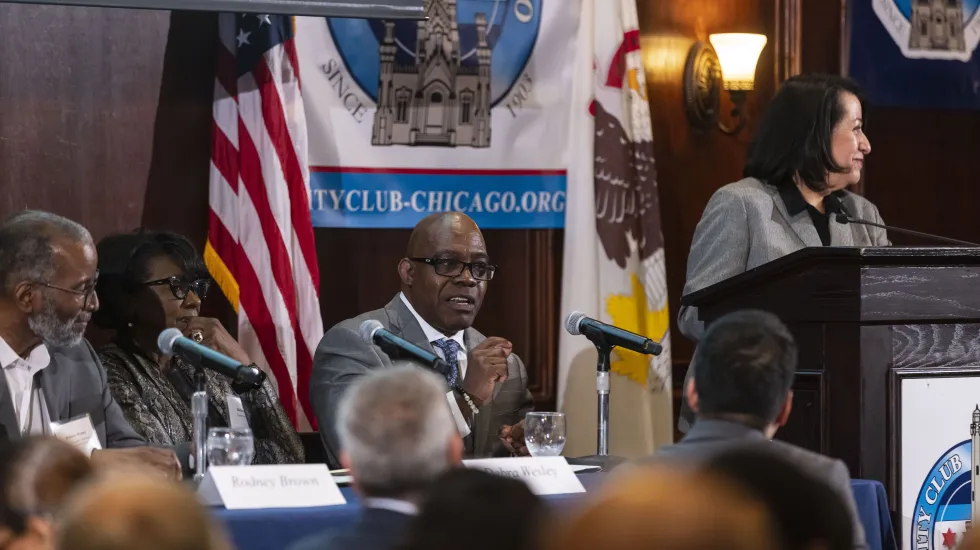
A new study by the University of Illinois-Chicago’s Great Cities Institute has documented generations of “disinvestment, systemic racism and neglect” in North Lawndale.
Results of the study, commissioned by the Lawndale Christian Development Corporation, were made public at a City Club of Chicago panel discussion Monday.
“The well-being of residents is bolstered by the economic health of a neighborhood,” said Teresa Córdova, director of the Great Cities Institute. “The problem occurs when … the wealth-building opportunities aren’t enough. When those wealth-building opportunities are denied, you start to have various quality of life indicators that are parallel to that.”
Those parallels were found in the $124 million worth of resident spending leaving the community each year and the more than 3,000 jobs in the community going to non-residents over the last decade because only 12.7% of residents had bachelor’s degrees — but more than 21% of the available jobs require one. Less than 3% of North Lawndale residents are white, but white workers make up more than half the community’s workforce.
All of this, panelists argued Monday, affects efforts to build wealth in the community.
What to do? Some ideas were outlined in the Lawndale Service Area Databook, which also was presented at City Club on Monday.
The book called for “heavy investment” in early childhood and elementary education, building jobs and residential internships around the abundance of healthcare and education positions in the neighborhood, and infrastructure development on empty lots and in vacant buildings.
“Even though the unemployment rate in North Lawndale remains three times higher than the city of Chicago, it is not a reflection of folks’ desire to work,” said panelist Brenda Palms Barber, CEO of the North Lawndale Employment Network. “The reality is that there are reasons why individuals aren’t able to work. I would want employers to rethink who they’re hiring and what the qualifications are for that job.”
If employers shift their focus to skills rather than degrees, more local residents would find work, Barber said, adding that this includes looking at the skills of those returning from incarceration.
“We wouldn’t have a labor shortage, in my opinion, if we would consider that population to be viable applicants for jobs,” she said.
Meanwhile, panelist Richard Townsell, executive director of the Lawndale Christian Development Corporation, said the city needs a plan to fast-track projects in the neighborhood. But, he added, his organization also is making plans for 1,000 three-bedroom, two-bath homes priced under $250,000.
“I care about housing because people have to live,” Townsell said. “We want to make sure that people are able to have access to a beautiful brand-new home that they can afford for roughly what they’re paying in rent right now.”
These efforts, Córdova said, show to the entire city that North Lawndale is “like many other communities. They want homes, safe streets, good schools, dignified living-wage jobs.”
Cheyanne M. Daniels is a staff reporter at the Chicago Sun-Times via Report for America, a not-for-profit journalism program that aims to bolster the paper’s coverage of communities on the South and West sides.







